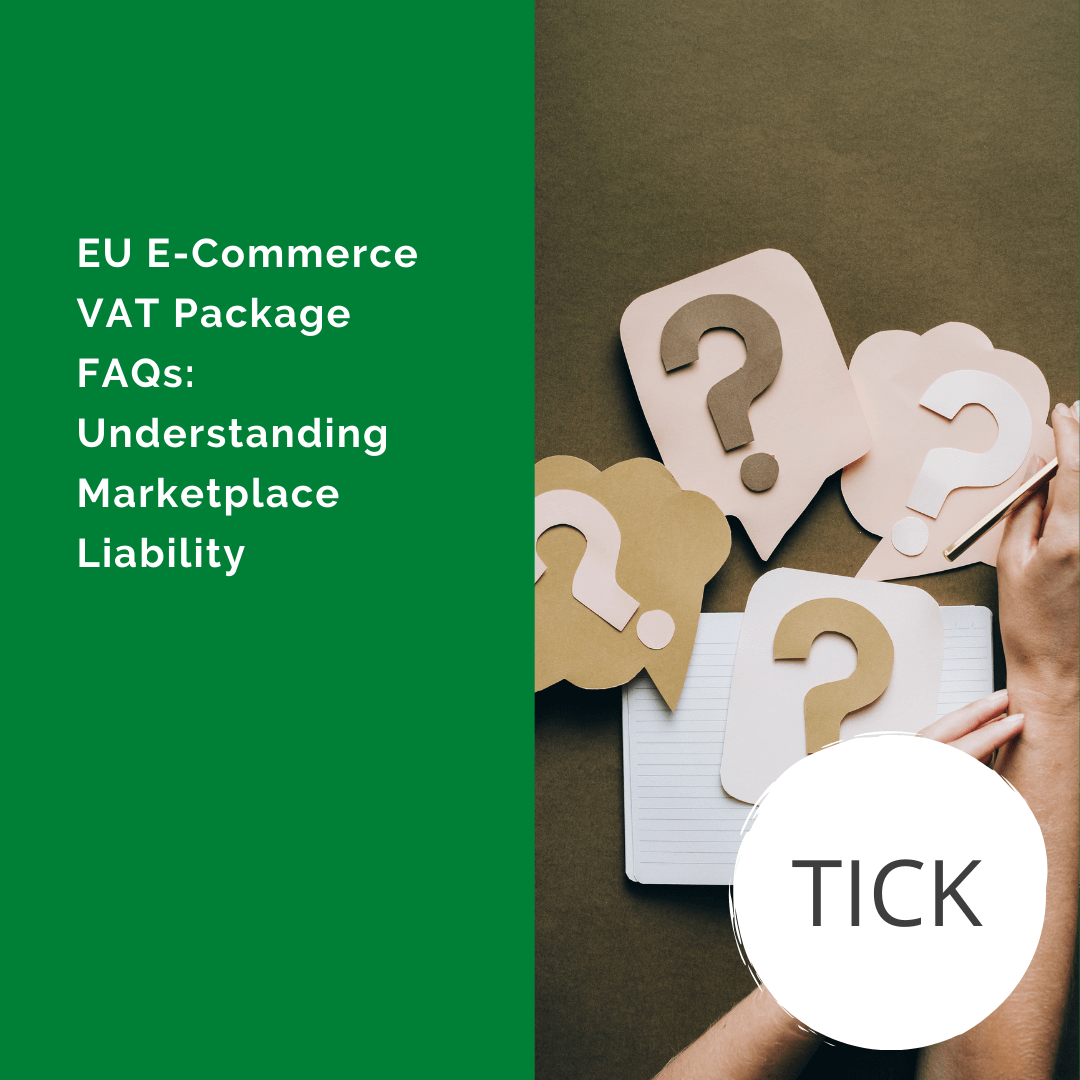The new One Stop Shop (OSS) and Import One Stop Shop (IOSS) systems introduce significant changes to the VAT treatment and reporting mechanisms for sales to private individuals in the EU.
The EU E-Commerce VAT Regulation is a complex topic and there are many questions that companies are looking for answers to. We will briefly present some of them below:
If my company sells via the marketplace, who is responsible for VAT? My company or the market?
When a business facilitates sales through an online marketplace, the latter may become a “recognized supplier” liable for VAT rather than the initial “primary” supplier.
To determine if the market will become an established supplier (responsible for VAT) you need to:
- Check if the market meets the conditions of “facilitating” supply, as in some cases there are exceptions where the online platform may not be considered as facilitating sales.
- Consider the state of your business and make sure your sales fall within the range of transactions for which the market may be responsible. These transactions would be:
- B2C sale of goods in a shipment up to EUR 150 that have been imported from third countries (means B2C sale of goods in which the goods are located outside the EU at the point of sale). This applies regardless of where your company is located.
- If it is intra-community B2C distance sales of goods (meaning B2C sales of goods that were in the EU at the point of sale), the trading platform will only become responsible if your company is based outside the EU.
It’s important to remember that while the market is acting as an established supplier, your business may still need to report a recognized B2B delivery depending on where the goods are at the time of sale.
The above implications only show that VAT taxation may differ, so we recommend that you seek advice tailored to the individual configuration of each company.
If a US seller sells to the EU via Amazon and has opted for the pan-European program, can the seller or Amazon still apply for an OSS?
In such a scenario, Amazon would become an established supplier and therefore would be required to account for VAT on B2C supplies that were facilitated through its platform. Therefore, if they use the OSS mechanism, Amazon is responsible for submitting the OSS declaration.
However, there are additional VAT obligations that will apply to the US seller. This would be related both to its role as the primary supplier and to the terms of the pan-European program.
As the latter suggests moving goods between Amazon warehouses in the EU on behalf of the seller, this often involves the obligation to register a US seller to report the movement of your own inventory.
Additionally, as an underlying supplier, the US seller would have to report Amazon an approved B2B delivery that must be determined on the basis of the transaction. This alleged delivery may take place in different countries and may result in registration in additional jurisdictions.
If I sell goods worth more than € 150 from the US to the EU via Amazon, how does Amazon collect VAT and duties from the customer – do they include these amounts in the totals at checkout?
This type of delivery is defined as the mail order sale of goods imported from third countries. The liability of the fair in terms of VAT in relation to these supplies is limited.
For example, Amazon would only be liable for goods sold in a shipment up to € 150. For deliveries above this value, the normal rules would apply and a seller shipping goods from the US to EU customers would essentially have two options:
- Importing its goods to the country of destination and then selling them to the end customer. This would result in the obligation to register for VAT in the said country or another EU Member State to which the goods are imported and sold. In these cases, no thresholds apply and registration is required on a per transaction basis.
- Transferring responsibility for customs formalities to the end customer, making him responsible for import VAT and all related formalities and taxes levied upon import. Some EU Member States may require the final consignee to provide sufficient proof of authorization from a freight forwarder who performs import formalities on their behalf.
I am a US seller storing goods in Germany and selling goods from Germany to Germany via Amazon. Will Amazon report this in the OSS declaration or will it submit a country declaration on my behalf?
For a non-EU based company, any B2C sales in the EU made via the online marketplace will transfer the VAT liability to the marketplace which will take over as the recognized supplier. This means that the latter would have to account for B2C sales that it conducted under its own name, and not on behalf of the underlying supplier.
In addition, sales of goods located in Germany at the time of sale are regarded as local sales (domestic deliveries) when sold to private persons in that country. Given that the OSS only covers intra-Community distance sales of goods, Amazon would be required to report such sales as the primary supplier in its VAT return in Germany.
However, as a base supplier, you have to include the B2B delivery in Germany, where the goods were at the time of sale.
If any of the elements of this transaction changes, e.g. goods are moved between warehouses under your name between different EU Member States, the respective obligations will change. It is important to note that market liability is determined on a transaction basis, which could result in VAT liabilities for you.


